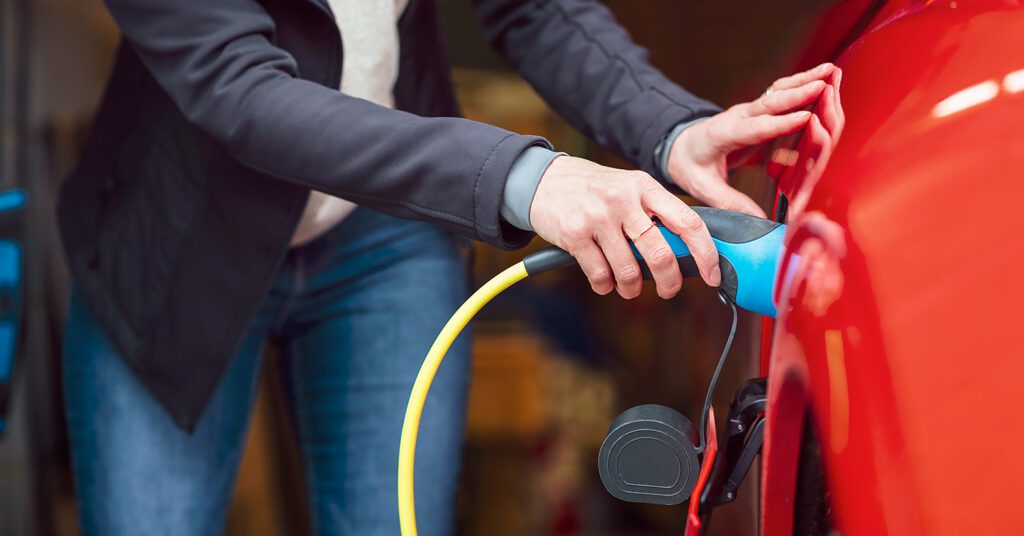The UK could be home to more EV charge points by 2030 than traditional fuel pumps.
Britain’s government just announced plans to increase the current number of public chargers tenfold by the end of the decade, ahead of the expected national and global transition away from combustion engines and towards electric cars.
The £500 million Department for Transport-led scheme specifically includes £450 million for public and on-street charging for those without driveways. This was previously announced as part of the £1.6bn Electric Vehicle Infrastructure Strategy, details of which are now public.
The plans will hopefully enable more Britons to adopt electrification, as nearly 25 percent of all households do not currently have access to off-street parking. This is a significant obstacle to the charging of personal electric vehicles, which can take anywhere from 30 minutes to 12 hours. (Either way, significantly more time-consuming than filling a car up with gasoline.)
The UK is set to ban all sales of new fossil fuel-powered cars and vans by 2030, a deadline that has also been matched by many private automobile manufacturers around the world. According to the new plan, the government expects 300,000 public chargers to be available by the same year. Chargepoint operators will also be legally required to meet certain standards, such as enabling drivers to pay and find nearby chargers easily.
“No matter where you live—be that a city centre or rural village, the north, south, east or west of the country—we’re powering up the switch to electric and ensuring no one gets left behind in the process,” says Transport Secretary Grant Schapps.

The UK will need nearly 500,000 new EV chargers by 2035
Despite the government’s optimism, the plan has received criticism from various companies and motoring groups for still falling short of expected demand. Energy regulator Ofgem previously estimated that around 25,000 public charging stations would need to be installed every single year until 2035 in order to reach the 480,000 and two million power leads required.
Furthermore, despite Schapps’ statement to the contrary, there is also a growing regional divide in the availability of EV chargers. And, in the historically underserved north of England, this disparity is growing even faster. Currently, around a third of all chargers are in London.
While electric cars are undeniably an essential part of national and international plans to reach zero emissions and mitigate climate change, they are far from a silver bullet. The affordability of new EVs (and new vehicles in general) means that they are out of reach for the vast majority of road users, with 75 percent of UK drivers purchasing used automobiles.
It’s also worth noting that active travel (such as cycling, walking, or wheeling) is the most sustainable solution, with public transportation a close second. Replacing all traditional vehicles with electric ones is not an acceptable solution to transportation emissions, and unfortunately, Britain’s public transport systems are some of the most prohibitively expensive in the world.
Where governments are falling short, private companies are exploiting the absence of public chargers for their own benefit. Both Taco Bell and Starbucks are hoping that adding EV charge points at stores will encourage an uptick in business from in-need travelers.


